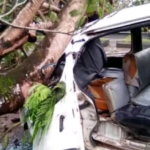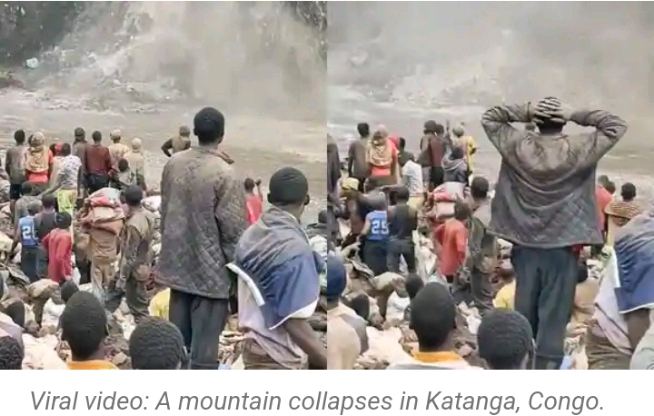A dramatic event in the Katanga region of the Democratic Republic of Congo (DRC), has a mountain collapse revealing vast quantities of copper, capturing global attention.
A video of the incident, shared widely on X (formerly Twitter), shows people running as the mountain crumbles.
The footage has sparked a flurry of reactions on social media. Some users questioned the persistent poverty in resource-rich African nations, while others voiced concerns over potential exploitation by Western countries.
“But [Congo] remains one of the poorest countries in Africa; I really don’t know why,” wrote one user.

Another remarked, “The West will not allow any African country to enjoy their resources,” while one commenter added, “Hope the Brits won’t come and steal it.”
One user advocated for nationalizing Congo’s resources, writing: “This copper is a natural resource of the people of Congo. 100% of mines should be nationalized, and all profits used for the benefit of the people – free healthcare, education, and housing.”
Katanga: A Region Rich in Resources
The Katanga region, located in the heart of Africa’s copper belt, has long been a global hub for mining activities. Spanning 450 kilometers from Luanshya in Zambia to Congo’s Katanga, the area has been known for large-scale copper mining since the early 20th century.
In the 1950s, Katanga was the world’s leading copper-producing region. Today, it contributes over 10% of global copper reserves, bolstering the economies of both Congo and neighboring Zambia. The mining sector has provided infrastructure development and employment but also raised concerns over human rights abuses.
Human Rights Concerns Amid Mineral Wealth
Despite its vast natural resources, the DRC continues to grapple with poverty and exploitation. A report by Amnesty International, released in September 2023, highlighted human rights violations linked to large-scale mining projects in the region.
“The forced evictions taking place as companies expand industrial-scale copper and cobalt mining projects are wrecking lives and must stop now,” said Agnès Callamard, Secretary General of Amnesty International.
The report also noted that Congo’s history of colonial exploitation persists today, as the wealth derived from its resources often fails to benefit its people.
Global Demand and the Fight for Justice
Copper and cobalt, critical components in lithium-ion batteries, are key to the global shift toward clean energy. However, Amnesty International has called for a “just transition” to renewable energy, urging that climate justice should not come at the expense of human rights.
“Decarbonizing the global economy must not lead to further human rights violations,” the report stated, emphasizing the need for responsible and equitable resource extraction.
As the world’s demand for copper and cobalt surges, Congo’s unfolding situation serves as a stark reminder of the challenges faced by resource-rich nations in balancing economic growth, environmental sustainability, and human rights.










